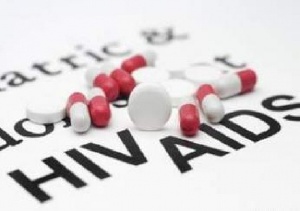- Home - News
- TWI News | TV
- Polls
- Year In Review
- News Archive
- Crime & Punishment
- Politics
- Regional
- Editorial
- Health
- Ghanaians Abroad
- Tabloid
- Africa
- Religion
- Election 2020
- Coronavirus
- News Videos | TV
- Photo Archives
- News Headlines
- Press Release
Health News of Tuesday, 26 April 2016
Source: GNA
NGO trains 55 female sex workers for HIV campaign
Hope for Future Generations (HFFG), a national health centred non-governmental organisation, has engaged and trained 55 female sex workers in the Brong-Ahafo Region to intensify HIV and AIDS education, prevention and care among their peers.
The peer educators, from 25 - 45 years, selected from Sampa, Drobo and Berekum would be trained to reach out and convince their peers to go for the voluntary HIV and AIDS counselling and testing, as well as other sexually transmitted infections (STIs) to know their status.
According to Mrs Rose Baalaboore, the Regional Coordinator of the HFFG, some of the peer educators had left the commercial sex work and furthering their education at various tertiary institutions.
Speaking at the close of an HIV and AIDS continuum of prevention, care and treatment project at Abesim in the Sunyani Municipality, Mrs Belaaboore said HFFG implemented a one year project, aimed at reducing the prevalence of HIV among female sex workers in the selected districts.
It was being funded by the United States Agency for International Development (USAID) through Family Health International 360, under the USAID linkages project with the 90-90-90 Cascade.
It recommended that 90 per cent of people mostly at risk of contracting HIV and AIDS were reached with HIV education.
Mrs Belaaboore said the project was successfully implemented as the peer educators were able to reach 4,713 female sex workers in the project implementation areas.
She said 1,404 out of the figure went through voluntarily counselling and testing whilst 79 of them tested HIV positive.
Mrs Balaaboore explained that 67 of the HIV patients had been placed on treatment, and due to the success of the project, the project funders had extended its implementation for additional three months.
Ms Irene Sawerteh, a Programmes Manager for HFFG said building the capacity and skills of peer educators is an effective way of reaching out to the key population communities.
She said the capacity of peer educators were built on sending preventive messages on HIV and other STIs, stigma, sexual and gender based violence to their peers.
The Executive Director of HFFG, Mrs Cecilia Senoo, commended FHI 360 for the technical support it provided in making implementation of the project successful.
She charged all to join hands in fighting HIV and AIDS, placing more emphasis on preventive methods-abstinence, being faithful and condom use and respect of the rights of people-at-risk of HIV infection.
“This will help reduce stigmatisation and discrimination since HIV and AIDS is no respecter of persons,” she added.











